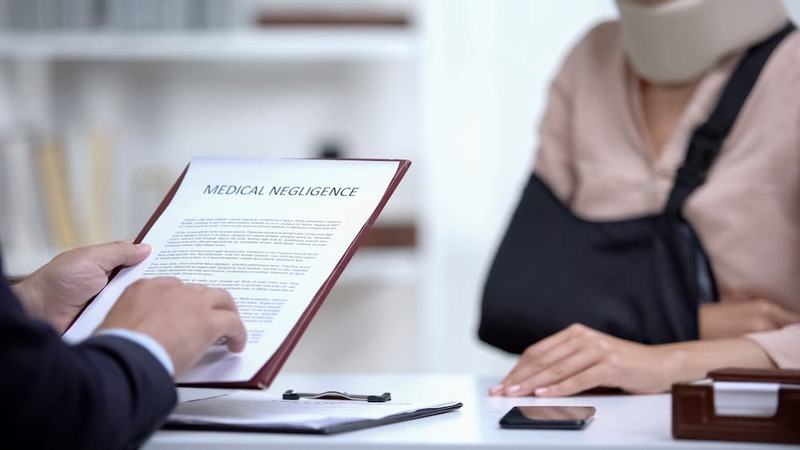
We trust doctors, nurses, and other healthcare professionals to exercise the utmost care when delivering treatment. While statistics regarding the incidence of medical malpractice vary widely, everyone can agree that it occurs too often.
Researchers at Johns Hopkins found that medical errors cause 10% of all deaths in the United States and are the third leading cause of death in the United States, with more than 250,000 deaths caused by medical errors every year. These statistics are solely for fatalities, indicating that the incidents of nonfatal injuries caused by medical errors are likely higher.
What Is Medical Negligence?
Medical negligence occurs when healthcare professionals fail to provide the level of care that a reasonable healthcare professional would provide under the same or similar circumstances.
When medical negligence occurs, the injuries are often devastating. Patients can require lifelong care and be unable to work or participate in their usual day-to-day activities. Unfortunately, some victims of medical negligence die from their injuries.
Proving Medical Negligence
Medical negligence, or medical malpractice, covers a variety of claims, including the following:
- Surgical errors,
- Misdiagnoses,
- Delayed diagnoses,
- Hospital falls,
- IV site injuries,
- Pressure sore injuries,
- Birth injuries,
- Pharmaceutical errors,
- Violations of informed consent laws, and
- Hospital-acquired infections.
These are only a few of the most common medical negligence injuries. An experienced attorney can review your case and help you determine if you were the victim of medical negligence.
The Four Elements of Medical Negligence
To prevail in a medical negligence case, you must prove that your healthcare professional acted negligently and caused you injury resulting in damages. You must prove four elements of medical negligence to have a successful case.
Existence of a Duty of Care
First, you must prove that you had a healthcare professional-patient relationship with the healthcare professional who harmed you.
When a healthcare professional-patient relationship is established, the healthcare professional is responsible for providing a level of care that a similar, reasonable healthcare professional would provide, given the circumstances. This obligation is called a duty of care. Establishing that a healthcare professional owed you a duty of care is often relatively straightforward.
Breach of a Duty
Second, you must prove your healthcare professional breached their duty of care. That means you must prove your healthcare provider acted differently than another similarly skilled professional would have acted in the same situation.
Proving that a breach of duty occurred can be challenging. To meet your burden of proof for this element, your attorney might call on other healthcare professionals of the same specialty to testify as expert witnesses. The witnesses will discuss your healthcare professional’s actions and provide an opinion on whether their actions fell short of professional standards.
Causation
Next, you must prove your healthcare professional’s breach of the standard of care caused your injury. This element is called causation. You can only collect compensation for your damages if your doctor’s breach of duty caused your injury. The healthcare professional’s attorney will likely attempt to show that you would have suffered your injuries regardless of the healthcare professional’s actions, and therefore there was no legal causation.
Damages
Finally, you must prove that you suffered damages for which you can be compensated. Damages are the economic and noneconomic losses you suffered because of your Healthcare professional’s negligence. If your healthcare professional was negligent, but their negligence did not harm you or cause you to suffer any losses, you will not be able to collect compensation.
Do I Have a Medical Negligence Case?
No one is ever prepared to deal with the challenges of suffering a serious injury or the death of a loved one following a medical professional’s negligence. When medical professionals harm patients with negligent care, working with a skilled legal advocate can help you seek justice. You may be wondering, do I have a medical negligence case?
To determine if you have a good chance of winning your medical negligence case, you must be able to prove all four elements of medical negligence. However, as you have seen, proving a medical negligence case is complicated and requires a thorough understanding of the law, an in-depth investigation of your injury, and knowing how to use evidence to build a strong case.
Contact Experienced Medical Negligence Attorneys
For over 35 years, Dempsey Kingsland & Osteen has worked tirelessly to hold negligent hospitals, doctors, nurses, and medical professionals accountable for their actions. Our medical malpractice attorneys at Dempsey Kingsland & Osteen have recovered millions of dollars on behalf of clients who were injured by negligent healthcare professionals.
Our staff includes medical malpractice attorneys, paralegals, legal assistants, and a full-time medical team consisting of a registered nurse and a physician. Our wealth of experience and track record of success is why we are considered the premier medical malpractice firm in Kansas City.
Contact us today to schedule a free consultation so that we can evaluate your case.


